
As early as 1862, Smith & Wesson began making plans to manufacture a .44-caliber, top-break single-action revolver containing a cartridge (rather than cap and ball). However, producing arms for the Civil War and other factors stalled its production for several years. After considerable development of various models and continuous design changes, the Smith & Wesson Model 3 (indicating frame size) First Model American chambered in .44 Henry Rim Fire finally appeared in May of 1870 and was subsequently submitted to the U.S. Army Small Arms Board. The board reported “that the Smith & Wesson Revolver was superior to any other revolver submitted.” On December 28, 1870, the U.S. government signed a contract for 1,000 guns (800 with blue finish and 200 with nickel), but chambered in .44 S&W American, the first cartridge-firing revolver adopted by the U.S. military. Inspection was performed by the notable O.W. Ainsworth.
Although the Army Ordinance Board liked the new gun, it recommended that it be changed from a rimfire to centerfire cartridge. The S&W “partners,” as they were known, took the army’s recommendation and created a new centerfire cartridge featuring a slightly longer case than the .44 S&W American. And rather than boring the chambers straight through, a typical chamber for outside lubricated heel-type cartridges, the new cartridge featured a larger case than bullet diameter (a stepped chamber arrangement) and an inside lubricated bullet, which was a huge step forward in modern sixgun cartridge development. In fact, this was the first modern sixgun cartridge so designed and has remained a standard feature among all modern handgun cartridges.
This story is from the April - May 2020 edition of Handloader.
Start your 7-day Magzter GOLD free trial to access thousands of curated premium stories, and 9,000+ magazines and newspapers.
Already a subscriber ? Sign In
This story is from the April - May 2020 edition of Handloader.
Start your 7-day Magzter GOLD free trial to access thousands of curated premium stories, and 9,000+ magazines and newspapers.
Already a subscriber? Sign In
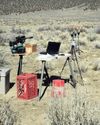
OEHLER's New System 89 Chronograph
Measuring Bullet Performance Downrange
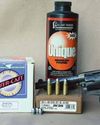
The Problem with Low Pressure Loads
Bullets & Brass
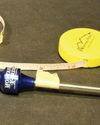
Measurements for Rifle Handloading
Handy Techniques for Accurate Ammunition
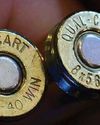
THE BRASS RING
In Range
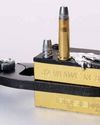
Semi-custom Bullet Moulds
Mike's Shoot in' Shack
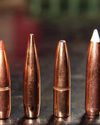
REVISITING THE 6.5 -06 A-SQUARE
Loading New Bullets and Powders
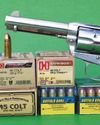
Cimarron Stainless Frontier .45 Colt
From the Hip
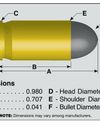
9x18mm Makarov
Cartridge Board

Alliant 20/28
Propellant Profiles
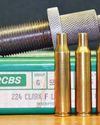
.224 Clark
Wildcat Cartridges